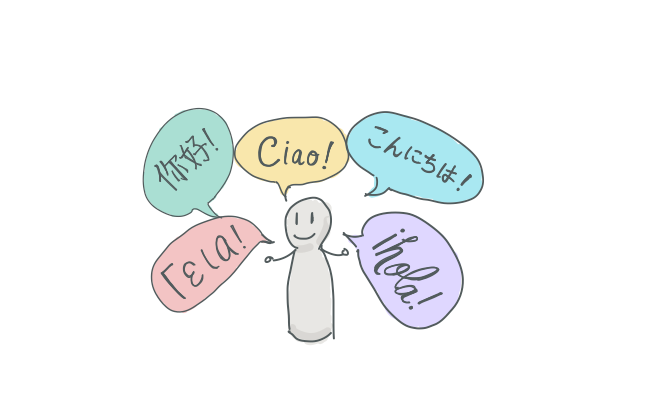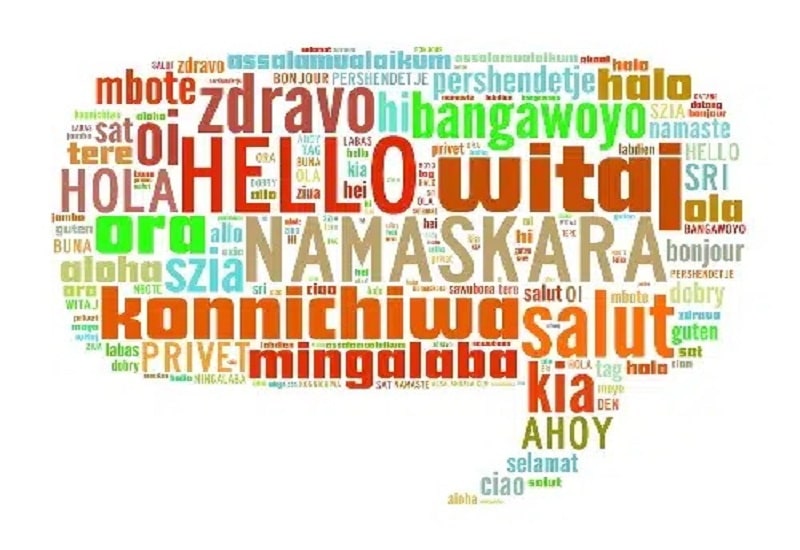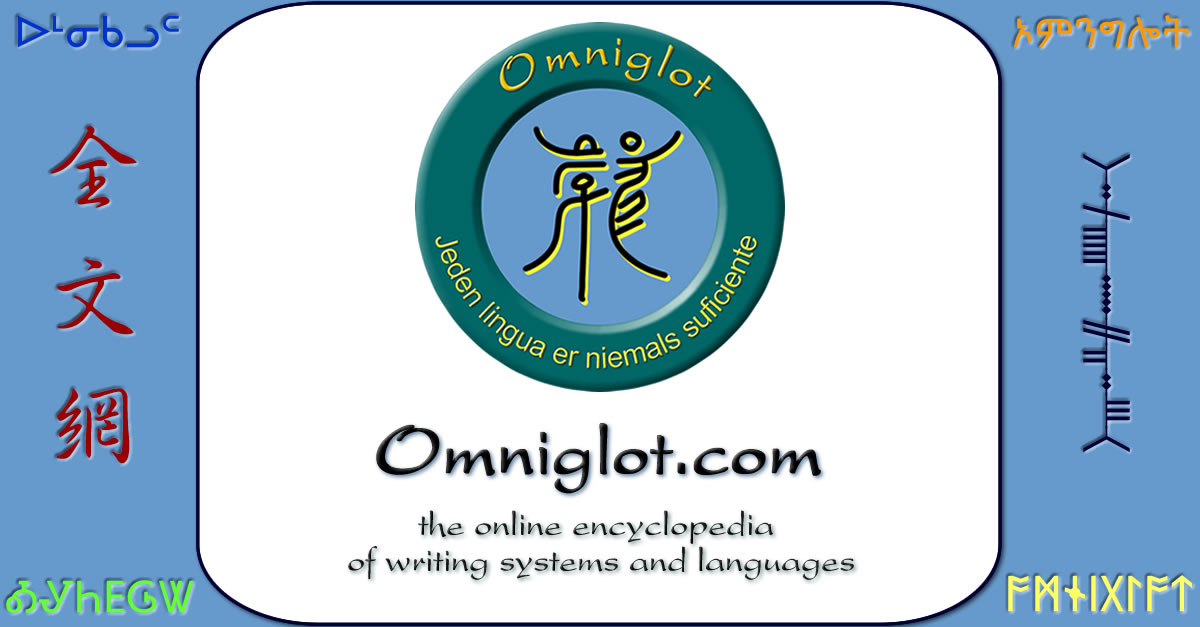Explore web search results related to this domain.

Language communities are platforms where language learners can practice a foreign language together.
However, before we start reviewing language community platforms, you should consider your speaking ability. Speaking is reactions, the ability to compose a phrase instantly. To speak, you must have a more or less tolerable vocabulary, basic knowledge of grammar, intelligible pronunciation, and the ability to understand the speech of your interlocutor. To develop your fluency, use the techniques from the book “Polyglot Notes. Practical Tips for Learning Foreign Languages” (e-book and paperback).You will improve your communication skills with the book “Polyglot Notes”. It is not enough to use the knowledge you already have, you need to acquire new knowledge and improve your skills, do not stop there. This language community is the most popular. In addition, the platform is universal. Here you can: Learn a foreign language with a qualified tutor (more than 5,000 tutors are at your service).Polyglot Club positions itself as a free language sharing community and has over 770,000 members. Although using chat rooms and forums is the most popular method of learning foreign languages in a community, Polyglot Club has gone further. The platform offers the opportunity to attend social events and practice English or any other language face-to-face.You can also use video chat to ask questions about how to improve your communication skills, make new friends, ask native speakers for advice and other services. For example, you can hire a tutor or translator. You can even go on a vacation with Polyglot Club! This platform seems to cover all possible activities related to learning foreign languages.
We cannot provide a description for this page right now
One ice breaker I like to tell people is that I can speak eight different languages — and flirted with two others. After all, it’s a feat I’m proud of and required over a decade of study and…
One ice breaker I like to tell people is that I can speak eight different languages — and flirted with two others. After all, it’s a feat…I would also recommend using this reserved time to review the material you have studied in the past. Learning an entirely new language is a slow process, especially if it’s a language very different from your native tongue or from other languages you already know.Whether you’re wanting to pick up a new language or are on-track to becoming a polyglot yourself, here are a few tips I’ve picked up on my language-learning journey.The phrase and use of Keigo, or honorific speech, is foreign to a native English speaker unaware of Japanese cultural norms, but misuse of either could severely offend a native listener. So, it pays to know about Japanese culture before charging into the conversations! The easiest way to learn about how culture shapes a given language is research.


You have to read, write, and speak ... mother tongue ... Then people get into evaluation battles. Evaluation is important and something I talk about in How to Become Fluent in a Language. In sum, you get to decide what being a polyglot means, and just need to be aware that others will judge you no matter which definition you come up with. It’s a good policy to make sure you only hang out with people who support your language learning goals, no ...
You have to read, write, and speak 4 more languages than your mother tongue ... Then people get into evaluation battles. Evaluation is important and something I talk about in How to Become Fluent in a Language. In sum, you get to decide what being a polyglot means, and just need to be aware that others will judge you no matter which definition you come up with. It’s a good policy to make sure you only hang out with people who support your language learning goals, no matter how many languages you’re learning.Want to know how to become a polyglot? Becoming multilingual doesn’t have to be difficult. This article gives you 11 easy tips to get there.The point I’m making is that no one “owns” the definition of what makes a polyglot. You’ll find all kinds of different definitions: You have to speak 2 more languages than your mother tongueChances are you can pick up that many words and read that many books within 3 months if you apply yourself. It’s all about using the right learning techniques and scheduling your time. Now, some people suggest that you read books in your target languages you’ve already read in your mother tongue.

They argue that this limits studies ... native tongue to a single non-native language, which is why they turned to polyglots. The researchers in the US used functional magnetic resonance imaging (fMRI) to scan the brains of 34 polyglots and published their findings in the scientific journal Cerebral Cortex. All of the participants had some proficiency in five or more languages but most began learning them as teenagers ...
They argue that this limits studies to asking only about two languages and comparing someone’s “privileged” native tongue to a single non-native language, which is why they turned to polyglots. The researchers in the US used functional magnetic resonance imaging (fMRI) to scan the brains of 34 polyglots and published their findings in the scientific journal Cerebral Cortex. All of the participants had some proficiency in five or more languages but most began learning them as teenagers or adults.New research looked into how people who speak different languages process them in the brain.People who speak more than five languages, known as polyglots, light up in the “language network” of the brain when they listen to languages that they speak, with stronger responses to the ones they are most proficient in. However, according to a new study, when listening to their native tongues, the brain’s activity was either similar or dropped off compared to non-native languages they were fluent in.The authors plan to carry out further research on people who learned multiple languages at a very young age, including people who immigrated and became less proficient in their native tongue.
Learn a foreign language: online and offline language exchange, educational resources. Community of teachers and students from all around the world. Register for free and find a native speaker.


Learning a foreign language is an exciting and rewarding activity that helps you broaden your horizons, communicate with people from different countries and open up new opportunities. However, to…
Learning a foreign language is the key to new opportunities and perspectives.However, if you stay motivated, constantly work on your skills and use different learning strategies, you are sure to succeed. So, make foreign language a core part of your life, practice constantly, strive to develop and be persistent. This is the only way to really improve your foreign language skills and open new horizons in your life. The practical manual “Polyglot Notes.Practical Tips for Learning Foreign Languages” (e-book and paperback) will become a desktop assistant for a wide audience: for those who want or are already learning a foreign language, doing it on their own or with a teacher, individually, in a group or in an educational institution (school, college, university, academy). The manual will help to structure and organise your individual language learning process and give you the opportunity to define your own language learning methodology, which will be interesting and not burdensome. Thanks to the recommendations in “Polyglot Notes” you will be able to develop such language skills as speaking, listening, reading and writing faster and more effectively.What exactly do you want to achieve by speaking a foreign language? Do you want to communicate fluently at work or in your daily life, travel without problems, or access additional educational opportunities? Define your goals and develop a plan of action. One of the key aspects of learning a foreign language is immersion in the language environment.

Learning multiple languages has always fascinated me. The idea of being able to communicate in someone else’s native tongue, to understand their culture and way of thinking, is a journey full of surprises and rewards. My path to becoming a polyglot — someone who knows and uses several languages ...
Learning multiple languages has always fascinated me. The idea of being able to communicate in someone else’s native tongue, to understand their culture and way of thinking, is a journey full of surprises and rewards. My path to becoming a polyglot — someone who knows and uses several languages — has been both challenging and incredibly fulfilling.Learning multiple languages has always fascinated me. The idea of being able to communicate in someone else’s native tongue, to understand their culture and way of thinking, is a journey full of…The Challenges, Joys, and Unexpected Adventures of Embracing New Languages and Cultures on the Road to MasteryFlashcards, language exchange meetups, and immersion experiences in countries where the languages were spoken were all valuable. I also found that teaching others the languages I was learning helped reinforce my own knowledge. The most rewarding aspect of becoming a polyglot is the ability to connect with people in their own language.
People who speak more than five languages, known as polyglots, light up in the “language network” of the brain when they listen to languages that they speak, with stronger responses to the ones they are most proficient in. However, according to a new study, when listening to their native ...
They argue that this limits studies to asking only about two languages and comparing someone’s “privileged” native tongue to a single non-native language, which is why they turned to polyglots. The researchers in the US used functional magnetic resonance imaging (fMRI) to scan the brains of 34 polyglots and published their findings in the scientific journal Cerebral Cortex. All of the participants had some proficiency in five or more languages but most began learning them as teenagers or adults.New research looked into how people who speak different languages process them in the brain.People who speak more than five languages, known as polyglots, light up in the “language network” of the brain when they listen to languages that they speak, with stronger responses to the ones they are most proficient in. However, according to a new study, when listening to their native tongues, the brain’s activity was either similar or dropped off compared to non-native languages they were fluent in.The authors plan to carry out further research on people who learned multiple languages at a very young age, including people who immigrated and became less proficient in their native tongue.


Arieh Smith, a New York City-based polyglot who runs the YouTube channel Xiaomanyc, talks language-learning with Big Think.
Get Big Think for Your Business. Enable transformation and drive culture at your company with lessons from the biggest thinkers in the world. Learn More → ... Arieh Smith, a New York City-based polyglot who runs the YouTube channel Xiaomanyc, talks language-learning with Big Think.So it was admittedly encouraging to hear that Arieh Smith, a New York City-based polyglot who runs the popular language-learning YouTube channel Xiaomanyc, didn’t leave his first foreign language classes with much proficiency either.Learning a new language isn’t only for those who are smart or linguistically gifted; it is something virtually anyone can do with consistent effort. ... Copy a link to the article entitled http://A polyglot explains the tips (and myths) of learning new languagesBig Think spoke with Arieh Smith, a New York City-based polyglot who runs the popular language-learning YouTube channel Xiaomanyc, about the basics of learning new languages.

Is it: a) many words?, b) many sounds? or c) many tongues? · Rob Well, there’s three syllables in ‘polyglot’, Neil, so I reckon it’s b), many sounds. · Neil OK, Rob, we’ll find out if that’s right at the end of the programme. But leaving aside the origins of the word, what exactly does being a polyglot involve? British-born polyglot, Richard Simcot speaks eleven languages...
Rob So that proves it, Neil: speaking many languages is good for the head, heart, mind and soul! ... Rob And speaking of words, what does the ‘glot’ in polyglot actually mean? Was my answer correct? · Neil Ah, that’s right. In my quiz question I asked you for the meaning of the word ‘polyglot’. · Rob I said, b) many sounds. · Neil But in fact the correct answer was c) many tongues.Is learning languages good for head, heart and soul?Neil The English are famously slow to learn other languages. But it seems that Rob and I - and of course you - our global audience here at 6 Minute English - are good examples of polyglots – people who speak more than one language, sometimes known as 'superlinguists'.Richard Simcot A polyglot for me can be anyone who identifies with that term – it’s somebody who learns languages that they don’t necessarily need for their lives, but just out of sheer enjoyment, pleasure or fascination with another language or culture.

Every technique I use to learn languages quickly and effectively.
People often ask me what the secret is to learning foreign languages quickly and effectively. The thing is, there is no super secret method to learn a foreign language. You don’t need any fancy…The thing is, there is no super secret method to learn a foreign language. You don’t need any fancy software, expensive textbooks, or magical pills. Polyglots, language learning enthusiasts, and people around the world achieve success mainly through the use of a few simple strategies.An example of one of my language learning notebooks. This is the one outlier of this list, as it is not something other polyglots typically recommend. Whenever I am studying a foreign language, I write a ton, and I find it very helpful.Not only does it help me stay focused, as it’s harder to space out when you’re physically writing something down, but I also find it super motivating. When I see my notebook filled up with walls of text that I’ve copied down throughout my learning process, it gives me a sense of accomplishment and progress. And there you have it! The above six activities are all that I do when I study foreign languages.
The word “polyglot” (pah-lee-glot) ... tongues (languages).” It describes someone who is highly fluent in several languages. “Polyglot” has a few definitions and can be used as one of three different parts of speech, though its general use refers to having knowledge of multiple languages.
The word “polyglot” (pah-lee-glot) comes from the Greek polyglōttos, meaning “multiple tongues (languages).” It describes someone who is highly fluent in several languages. “Polyglot” has a few definitions and can be used as one of three different parts of speech, though its general use refers to having knowledge of multiple languages. Polyglots often learn multiple languages at once, both as a challenge and because they’re fascinated by the way languages work.But taking on the challenge of a new language is only part of the thrill for a polyglot. These learners love immersing themselves in the culture surrounding a language, whether that means living in a country to learn to local language or reading literature in their new tongue.What is a polyglot, and how do you become one? Learn more about this type of language master and how they differ from other language learners.They typically have a gift for linguistics and dialects, making it easy for them to learn languages quickly. The number of languages spoken by a polyglot is up for debate. Since poly means “many,” a person just needs to know many languages to be considered a polyglot.

Polyglots, people who are wise in the ways of foreign tongues, are uniquely dedicated people. We’ve taken it upon ourselves to scour the far reaches of the internet to find the best blogs written by polyglots. They are chock-full of compelling material, lessons learned firsthand and specialized learning tricks. By reading about the experiences of these clever folks, you’ll be sure to avoid major mistakes and pitfalls while delivering a massive boost to your overall language ...
Polyglots, people who are wise in the ways of foreign tongues, are uniquely dedicated people. We’ve taken it upon ourselves to scour the far reaches of the internet to find the best blogs written by polyglots. They are chock-full of compelling material, lessons learned firsthand and specialized learning tricks. By reading about the experiences of these clever folks, you’ll be sure to avoid major mistakes and pitfalls while delivering a massive boost to your overall language learning skills.What's the secret to becoming a polyglot? These polyglots have all had unique language learning journeys and they're sharing how they've gotten where they are with the rest of the world. Check out all the brilliant information, advice and tips on these polyglot blogs!Some of the posts feature her travel experiences and many include music videos and clips from her TV appearances and presentations as well as interviews with fellow polyglots. Among the blog category topics are the benefits of multilingualism, multilingual women and how to learn languages with songs and other media. Note: The blog was last updated in 2021. While there aren’t any super easy shortcuts to attaining real fluency in a foreign language, Olly Richards’ inspirational blog posts cover topics and tips designed to get you there quicker.There are priceless tips, valuable lessons, powerful strategies and expert advice that are drawn from his own experiences as well as conversations with other polyglots. Sam’s writing style is fresh and energetic with a nice lightness of touch. There is a lot of good material here with an archive that goes back to December 2012. Diving into the website will lead to such topics as how to think in a foreign language, memory strategies to supercharge your learning and what actors can teach us about learning a foreign language.


I speak 6 languages (more or less fluently) and understand two more. The technical term for someone like me who has mastered more than three languages is a polyglot. Being a polyglot isn’t about…
Never forget: Effective strategies for language maintenanceBeing a polyglot isn’t about burying your nose in a dusty textbook on some foreign language, nor does it mean I have some genetic advantage that just makes me good with languages. Instead, it’s about communicating, embracing, and being passionate about other cultures. ... Most people argue that they don’t even have time for a facial, much less the time available to learn a new language.Here are a few of my routines and how they help me live life as a polyglot and continue learning more languages. My whole day is structured around healthy language learning routines, which help me remain fluent in the foreign languages I speak and am currently learning.Learning should be about the journey, not the destination. I loathe when people ask me how many words they should know to speak a language fluently. It’s not about the words, and the languages you speak should become part of your life, not some yellowed certificate on a wall. Habits make for memories, and language routines become healthy habits that make you a true polyglot.
An article by Tom Thompson, a polyglot who has studied twenty or so different languages, about his language learning experiences.
What followed was a scholarship path to college, a junior year abroad, graduate school and more foreign trips, interesting jobs, and even a wonderful wife whose first language, Spanish, are all anchored by that teacher's now seemingly incredible effort to simply encourage one of her students. My language classes and travels have left an indelible lesson that goes well beyond language fundamentals. Once learned, nothing can take away my collection of foreign languages.Certainly every language has a unique flow and rhythm, and often even a special body language, as Edward Hall once wrote, that puts words and motion together to paint a particular cultural picture. I don't know much about any of these theories. One thing for certain is that if you're bored or unhappy with your life, just learn another language, and you'll be fine.Writing systems | Language and languages | Language learning | Pronunciation | Learning vocabulary | Language acquisition | Motivation and reasons to learn languages | Arabic | Basque | Celtic languages | Chinese | English | Esperanto | French | German | Greek | Hebrew | Indonesian | Italian | Japanese | Korean | Latin | Portuguese | Russian | Sign Languages | Spanish | Swedish | Other languages | Minority and endangered languages | Constructed languages (conlangs) | Reviews of language courses and books | Language learning apps | Teaching languages | Languages and careers | Being and becoming bilingual | Language and culture | Language development and disorders | Translation and interpreting | Multilingual websites, databases and coding | History | Travel | Food | Other topics | Spoof articles | How to submit an articleFor each language you learn and try to speak, there's the chance that it will motivate your listener to tell you how he, or she, sees things.

I like learning languages. I really do. I grew up bilingual and have been speaking two languages until the age of 6. One more language entered my life when school started. And by the time I turned…
I like learning languages. I really do. I grew up bilingual and have been speaking two languages until the age of 6. One more language…Always remind yourself of what you can achieve by learning the language when you feel like giving up. The reason can be any — from cognitive and entertaining (“I want to be able to see movies in the original and understand them”) to quite serious ones (I want to get a job in a foreign company, move to another country, etc.). Conduct at least a few classes with a tutor Most polyglots claim to have studied languages on their own.Every single polyglot will tell you that the best way to hone your knowledge is to communicate. They also point out that conversational practice is the best way to memorize new grammatical constructions and words. Thus, you do not memorize them on purpose but learn during an interesting conversation. Learn phrases, not words In order to be able to speak a foreign language, you don’t just need to know the words and have a rich vocabulary, but also to be able to use those words correctly in a conversation.Enjoy the process No polyglot will tell you that learning a language is boring. One of the main secrets of their success is genuine interest. Enjoy not only the idea that you can speak a foreign language but also the process of learning. Fortunately, thanks to a variety of teaching methods, nowadays, learning can be a fun hobby.

Looking for motivation on your language learning journey? Check out what these famous polyglots have said about the best ways to learn a language.
These people are known as polyglots. These brilliant multilinguists have their own self-made origin stories — stories driven by innate curiosity. At some point in their lives, they were bitten by the proverbial spider: a natural love for languages that made them want to learn more.Polyglots are certainly rare and interesting people: only about 3% of the world’s total population can speak four or more languages. Even if you just want to learn English online or know a few words in another language, it might help to get advice from people who have done it multiple times over.Their advice will put fire in your belly — whether you’re learning your second, third, or eighth language. Languages spoken: English (native), French, Spanish, Welsh, German, Macedonian, Swedish, Italian, Serbian, Bosnian, Croatian, Portuguese, Czech, Catalan, Russian, Dutch, Romanian, Albanian. Richard Simcott is perhaps not just known as a polyglot…Using her language learning experience, Lýdia mentors people to fluency by helping them focus on enjoyable methods that work for them. Lýdia is also respected for creating and running the annual Polyglot Gathering.


Recently, more and more often we have to face the statement that it is possible to learn a foreign language without grammar, as well as children learn the basics of the language. Such statements can…
Recently, more and more often we have to face the statement that it is possible to learn a foreign language without grammar, as well as…I would like to learn the memories from people who had experience of learning a foreign language without any explanations of grammar. The practical manual “Polyglot’s Notes. Practical Tips for Learning Foreign Language” (e-book and paperback) gives a description of methods for developing language skills: speaking, listening, reading and writing.The book also provides information on how to learn grammar, how to correct pronunciation, how to memorise new words quickly and effectively. The book “Polyglot’s Notes” is intended for both beginners and advanced learners of a foreign language.Recently, more and more often we have to face the statement that it is possible to learn a foreign language without grammar, as well as children learn the basics of the language. Such statements can be heard from people who provide language learning services.
This tool is perfect for language learners who want to practice writing in the target language. With this tool, learners can type text and get a translation, as well as pronunciation and syntactic highlighting. It allows learners to: Improve their ability to write and understand a foreign language.
This tool is perfect for language learners who want to practice writing in the target language. With this tool, learners can type text and get a translation, as well as pronunciation and syntactic highlighting. It allows learners to: Improve their ability to write and understand a foreign language.We are pleased to offer you a comprehensive and user-friendly platform for learning foreign languages. Our site is designed to help you learn a new language quickly and effectively.One of the main benefits of our site is the addition of translation of words and phrases. This feature allows you to quickly and easily translate any word or phrase you come across while learning a new language. With this feature, you can focus on learning new vocabulary and grammar without getting bogged down by unfamiliar words.Our platform also offers pronunciation help so you can practice speaking the language with confidence. Our syntax highlighting feature also helps you understand the structure and grammar of the language, making it easier to learn and retain new information.








